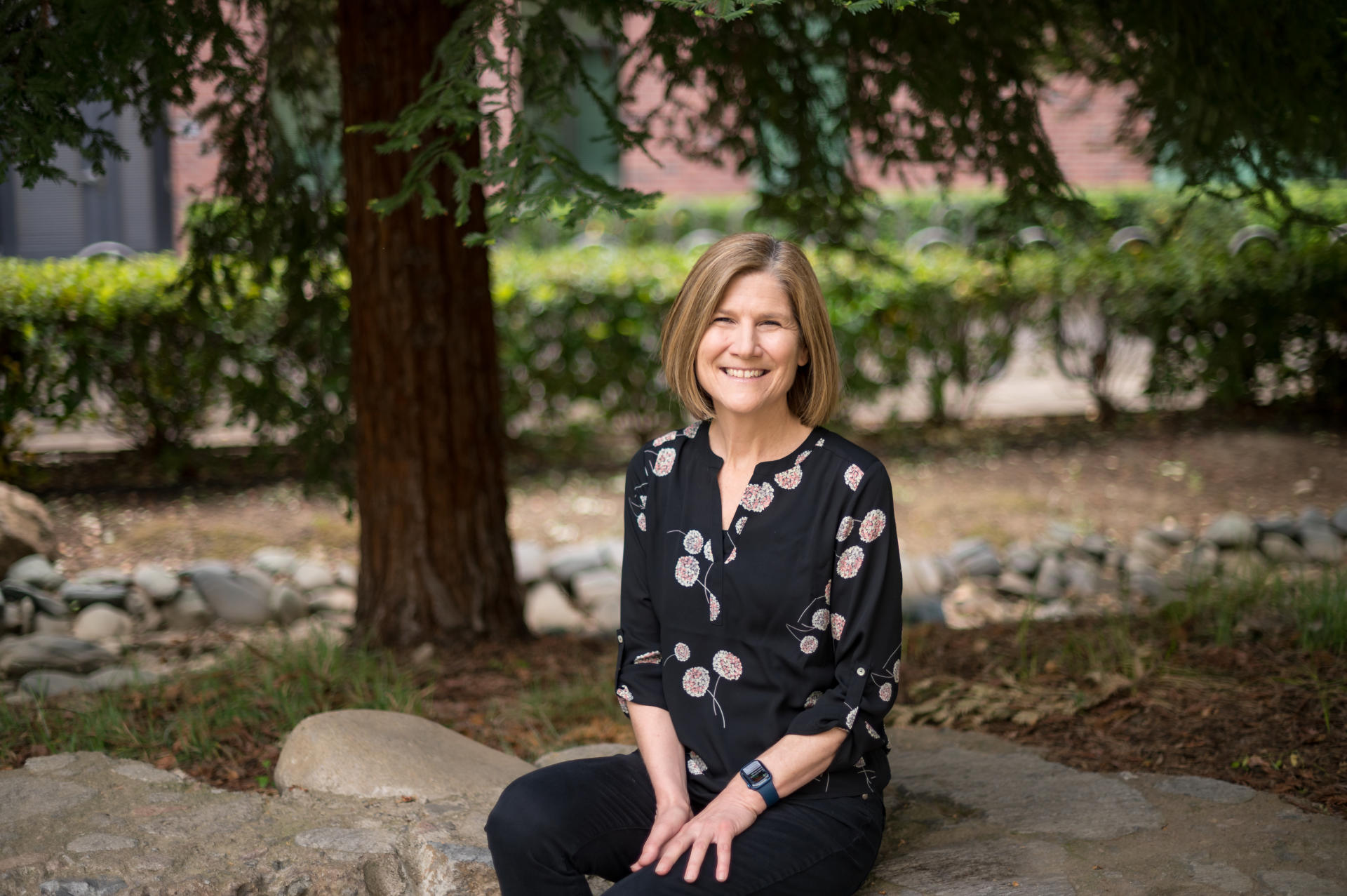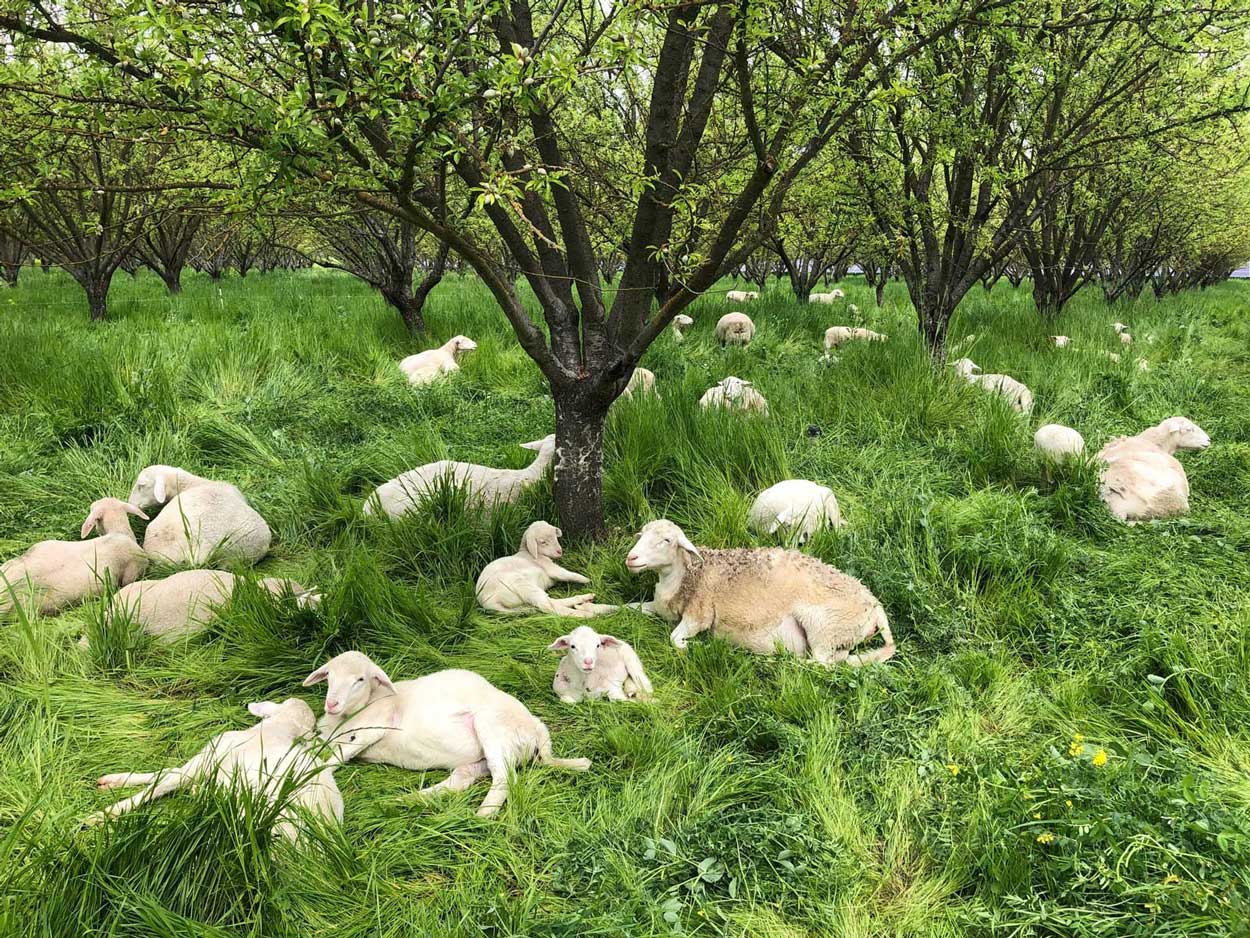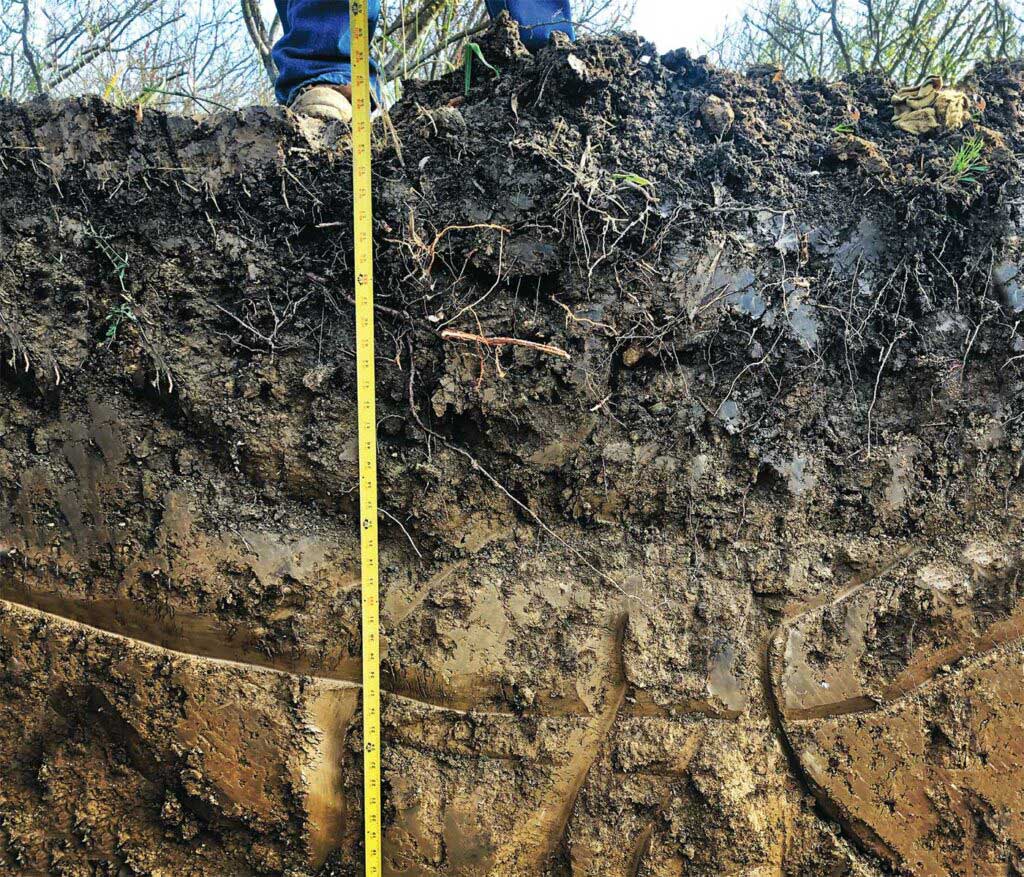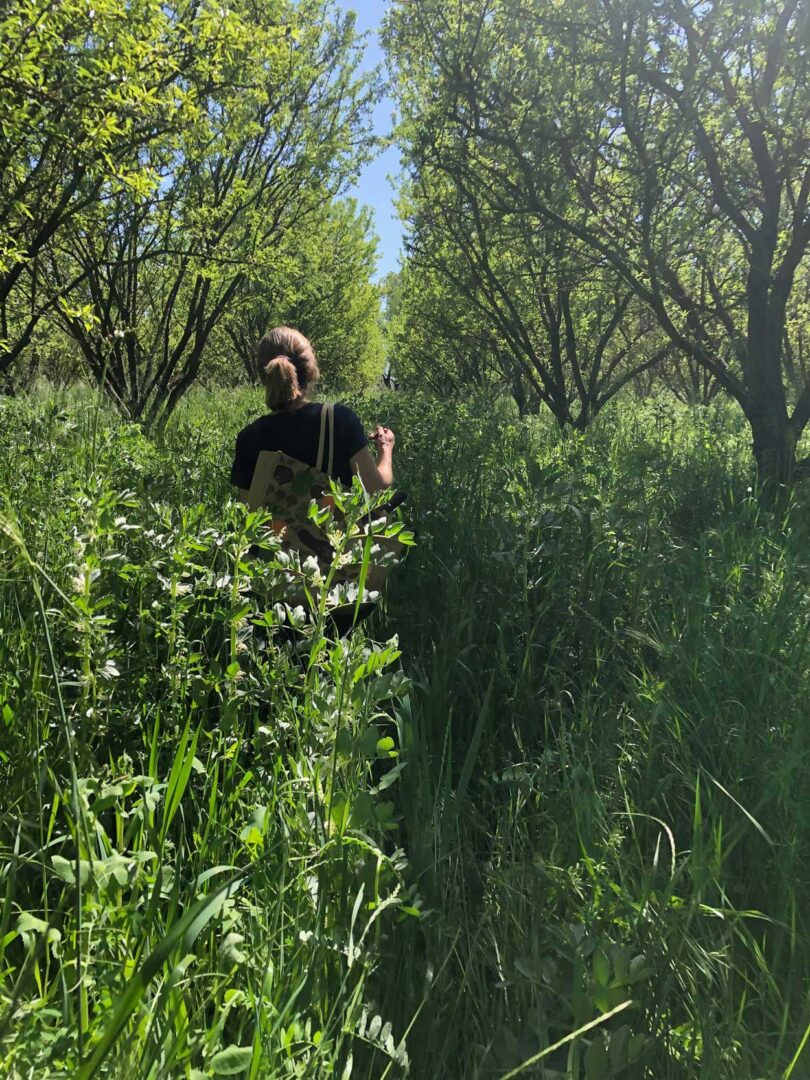Grad Student Farmer Grows Case for Marrying Agriculture With the Natural World

For years, birds have been singing the praises of Raquel Krach’s regenerative farming practices. She hears it every day.
“When we’re in our orchard, the birds are busy, and so loud,” she says. “But when you’re off the property, 100 yards away, the silence is deafening.”
Krach and her husband, Greg Massa, are co-owners of Massa Organics. She recently completed her master’s degree in interdisciplinary studies through Chico State’s Center for Regenerative Agriculture and Resilient Systems. With the completion of her master’s thesis—a study on the effects of regenerative agriculture on an almond orchard on their 250-acre organic farm—she has proof beyond the peeps and chirps of her feathered farm-mates that her efforts are paying off.
Krach’s study produced exciting data illustrating how and why regenerative farming is effective. Using cover crops and compost improved the farm’s soil health, increased its almond yield, and produced almonds that were healthier to eat—packed with calcium and other vitamins and minerals.
Evidence of Krach’s efforts is visible above ground and below on the swath of land that extends between Highway 45 and the Sacramento River just south of Hamilton City. The bleating of sheep grazing in the orchard substitutes for the hum of a mower. The grounds are thick with diverse plant life. And the soil is dark, rich, and teeming with bugs.
For Krach, it all illustrates the value of regenerative farming. But for other audiences, that kind of proof is, well, for the birds.

Planted in nature
Krach was brought up in suburban Los Angeles—not exactly a hotbed for future farmers. She didn’t fully realize it at the time, but her father’s love of plants and wildlife had rubbed off on her.
“He had plants anywhere and everywhere inside and outside,” Krach recalls. “We had violets, tropical orchids, and bromeliads. We had rabbits and guinea pigs in the backyard of our little suburban house.”
She started her freshman year at UC Santa Barbara studying social work, but that didn’t last long.
“The sociology classes were super boring and the marine biology for non-majors was really fun. I could play with sea urchins and starfish all day long,” Krach said. “I decided that since I was going to be there for four years, I was going to switch to something that was fun for me.”
Krach graduated with a degree in biology with a focus on organisms and ecology. She was fascinated by bugs and plants. During a quarter abroad in Costa Rica, Krach had what she describes as a “lightbulb moment” that continues to shape her vision of farming today.
“They had us take this agroecology class to help us understand the context we were in. It’s one thing to save the rainforest, but it’s another thing within the context of where people live and have to make a living,” Krach said. “That made perfect sense. How do you farm without having to cut down more rainforest? We needed to figure that out.”
Krach and Massa spent five years between UC Santa Cruz and an agroforestry plot in Costa Rica testing theories. And getting frustrated.
“I was doing theoretical work when I knew I could do it for real on my husband’s family farm,” she explained.
Krach and Massa came to Northern California and started what would become Massa Organics. They began experimenting with cover crops, no-till farming, and sheep grazing. Meanwhile, their acreage was transforming into an oasis of plant life and wildlife. If you’re paying attention, it’s easy to pinpoint the borders of their farm.
“It feels like a responsibility to us now because we’ve made a corridor of riparian vegetation so wildlife can travel along this corridor from the river up through our property and back if they need,” Krach said. “But it’s also meant to be just less noxious and less destructive for everything else, including the river.”

Where practice meets opportunity
While raising five children, Krach and Massa continued to experiment with agroecology (the use of ecological concepts in farming techniques). To do so, they mostly kept their hands busy and their heads down.
Things changed when Krach learned about Chico State’s Center for Regenerative Agriculture and Resilient Systems at approximately the same time as she received a grant to do cover crops and compost applications in their orchard. She enrolled in the regenerative agriculture program at Chico State to make the project her master’s thesis over the three-year implementation of the grant.
“It’s been a joy to combine my decades of experience as a farmer with being a student to do research on my own almond farm,” Krach said.
Krach has often wondered what impacts consistent composting could have on her yields, but the expense kept her from experimenting with it over large swaths and over long periods of time. The grant, coupled with her ability to study the impacts on the soil at Chico State’s soil lab, provided her the opportunity to find out.
She hoped that by collecting samples of the soil, vegetation, and almonds over the three-year study period she would see changes. The changes were slow to emerge, but eventually, they came.
“What we call ‘regenerative practices’ take time to produce results,” Krach said. “The changes come slowly because they’re based on biological processes. The grant allowed us to do the practices for three years. I didn’t have yield differences in the first two years, but in the third year, I saw an increase. If we hadn’t had the grant funding, then we wouldn’t have seen these results. And if I wasn’t enrolled in the graduate program, we wouldn’t have been monitoring the soil and other parameters. So, it was this amazing collaboration between farmers and researchers, the University, and the state and the taxpayers.”
Krach has completed her degree program, but she hopes to continue to grow the relationship between her farm and Chico State.
“I’m excited to have more connections and do more research,” Krach said. “I don’t know exactly what it will look like, but I’m thrilled about this program and the possibilities it brings and I would love to continue to be involved moving forward.”



